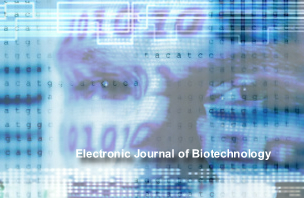
|
Electronic Journal of Biotechnology
Universidad Católica de Valparaíso
ISSN: 0717-3458
Vol. 3, No. 1, 2000, pp. 66-71
|
 Bioline Code: ej00006
Bioline Code: ej00006
Full paper language: English
Document type: Review Article
Document available free of charge
|
|
|
Electronic Journal of Biotechnology, Vol. 3, No. 1, 2000, pp. 66-71
| en |
Genetic instability and oral cancer
Park, No-Hee & Kang, Mo K.
Abstract
Development of oral cancer proceeds through discrete molecular genetic changes that are acquired from the loss of genomic integrity after continued exposure to environmental risk factors. Of particular importance in oral cancer development are tobacco-related chemical carcinogens and human papillomavirus (HPV) infection. To understand the mechanisms by which these risk factors contribute to tumorigenesis, we developed an in vitro model of sequential, multistep oral carcinogenesis model of normal human oral keratinocytes (NHOK) by immortalizing these cells with cloned "high risk" HPV genome. HPV viral genome alone failed to give rise to a tumorigenic cell population, which required further exposure to chemical carcinogens. HPV-immortalized cells exhibited impaired cell cycle control and DNA repair activity upon exposure to DNA damaging agents, and accumulated elevated frequency of spontaneous and mutagen-induced mutation. Furthermore, expression of E6 and E7 oncoproteins of "high risk" HPV were found to be sufficient for the enhanced mutation frequency in NHOK. These findings suggest that viral infection in combination with existing chemical carcinogens may be the paramount causative agents for the induction of genetic instability and development of oral cancer.
Keywords
Genetic instability, Oral cancer, Human papillomavirus, Keratinocytes
|
| |
© 2000 by Universidad Católica de Valparaíso -- Chile
Alternative site location: http://www.ejbiotechnology.info
|
|
